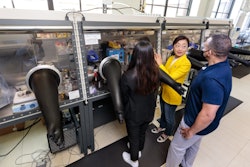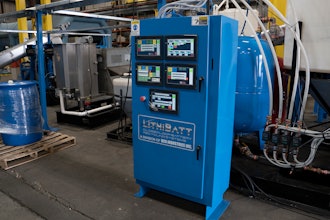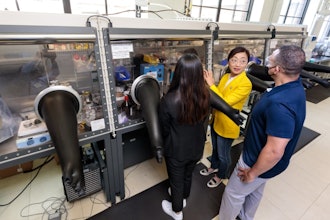ISLAMABAD (AP) -- Pakistan has taken a number of steps to prevent fertilizers made within its borders for agriculture from being used as explosives in roadside bombs that target American troops in Afghanistan, said a top U.S. military officer Monday.
Brig. Gen. Robert P. Walters Jr., deputy director of the U.S. military's Joint IED Defeat Organization, spoke in a conference arranged by the Pakistani military in the capital of Islamabad on ways to counter the bombs — often referred to as improvised explosive devices — that account for the vast majority of casualties in Afghanistan.
Many of the homemade bombs used in Afghanistan contain materials derived from calcium ammonium nitrate fertilizer produced in Pakistan at two factories. The fertilizer becomes a powerful explosive when mixed with fuel oil. The fertilizer issue has been a bone of contention between often wary allies, the U.S. and Pakistan.
The U.S. has pushed Pakistan for greater regulation of the fertilizer, which Pakistan says is necessary for its vital agriculture sector. The Lahore-based Fatima Group owns the two factories where the fertilizers are made.
Just last Friday, officials in Indiana withdrew state backing for a fertilizer plant being built in conjunction with the Fatima Group because state officials said they were concerned about whether the company's owners were doing enough to keep the potentially explosive material from being used against U.S. troops.
Walters said Pakistan has reinforced its border to prevent the fertilizer from being smuggled into Afghanistan. He also said the Fatima Group has improved its distribution, packaging and tracking procedures to prevent fertilizers from falling into the wrong hands.
"The government of Pakistan has done several things to assist in this counter IED effort," he said, although he cautioned that more work needs to be done.
At the same time, other ingredients are increasingly being used as the main ingredient in the bombs. Walters said 47 percent of the homemade IEDs used in Afghanistan are made with material derived from calcium ammonium nitrate fertilizer. But he said that potassium chlorate is now the main charge in 45 percent of the bombs — an increase from 20 percent a year ago.
About 80 percent of the IEDs that the U.S. and its allies encounter are termed "homemade," while others are made from old shells or other explosive ordinance.
Pakistan has at times bristled at the suggestion that it alone is responsible for the IED problem in neighboring Afghanistan, and pointed out that its own citizens and soldiers have suffered extensively from roadside bombs.
Pakistan has been battling an insurgency in the tribal areas in the northwestern part of the country bordering Afghanistan for years. Militants often target Pakistani troops or civilians using roadside bombs, and tens of thousands of people have been killed and maimed over the years.
Pakistan's top military officer, Gen. Ashfaq Parvez Kayani, said that the focus on calcium ammonium nitrate fertilizers has created the perception that controlling that element alone will remove the "menace of IEDs."
"There is evidence that as Pakistan tightens its control of use and distribution of CAN, terrorists simply switch to other precursors," he said during the conference.






















